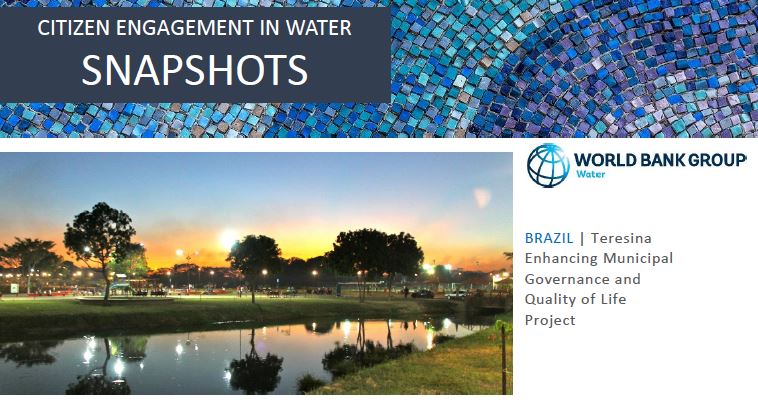CITIZEN ENGAGEMENT IN WATER SNAPSHOTS: Teresina Enhancing Municipal Governance and Quality of Life Project
Lagoas do Norte is a poor and vulnerable part of Teresina, the capital of Piauí State in Northeast Brazil. The region is characterized by perennial flooding, poverty, and social exclusion. Unemployment is at 15%, and a majority of those who do earn money (65%) make no more than $1.50 per person a day. Education level among residents is low; 1 in 2 adults have graduated high school, and less than 1 in 6 have a college degree. In Lagoas do Norte neighborhoods, the proportion of women to men is higher than in the city overall, and the region houses a population of Afrodescendants, one of the most excluded minority groups in Brazil. The objectives of the Teresina Enhancing Municipal Governance and Quality of Life Project, approved in 2008, were to modernize and improve the financial, urban environmental, service delivery management capacity of the municipal government, and its role in facilitating in the financial, urban environmental, service delivery, and economic development improvement of the quality of life of the low-income population of the Lagoas do Norte region of the city. The first phase of the project helped protect the residents from floods, expanded access to sanitation, improved the quality of water services, and provided green and leisure spaces for the community. In 2016, the project received additional financing to further improve the living conditions for 92,000 of the poorest residents of Teresina in Lagoas do Norte. Citizen engagement has been a core component of the project from its inception, and in most elements of the project.
